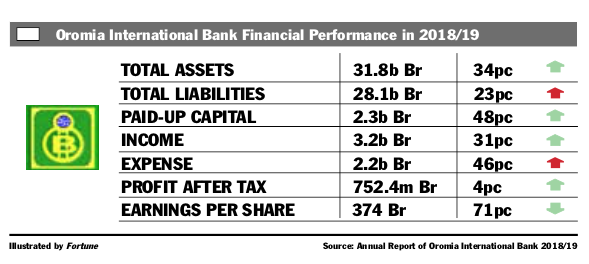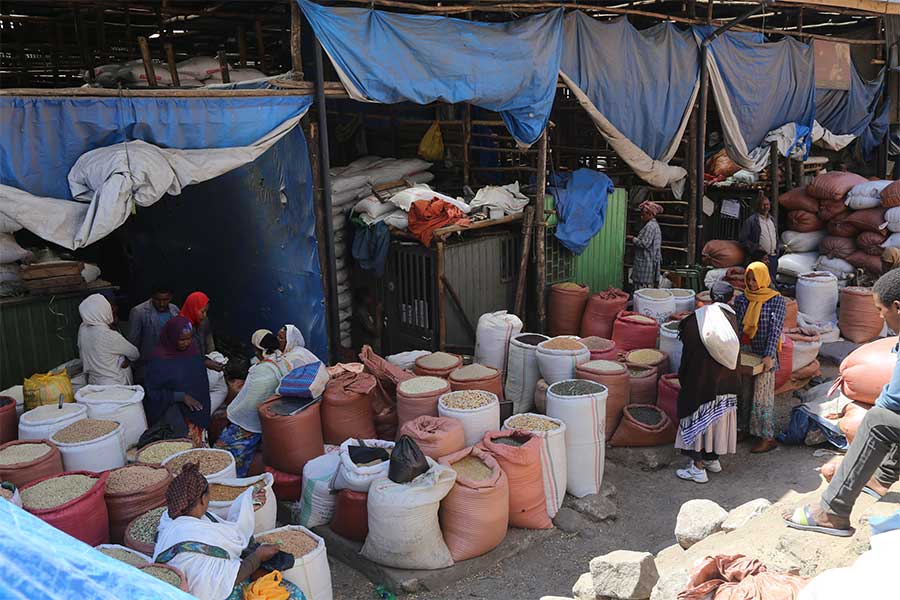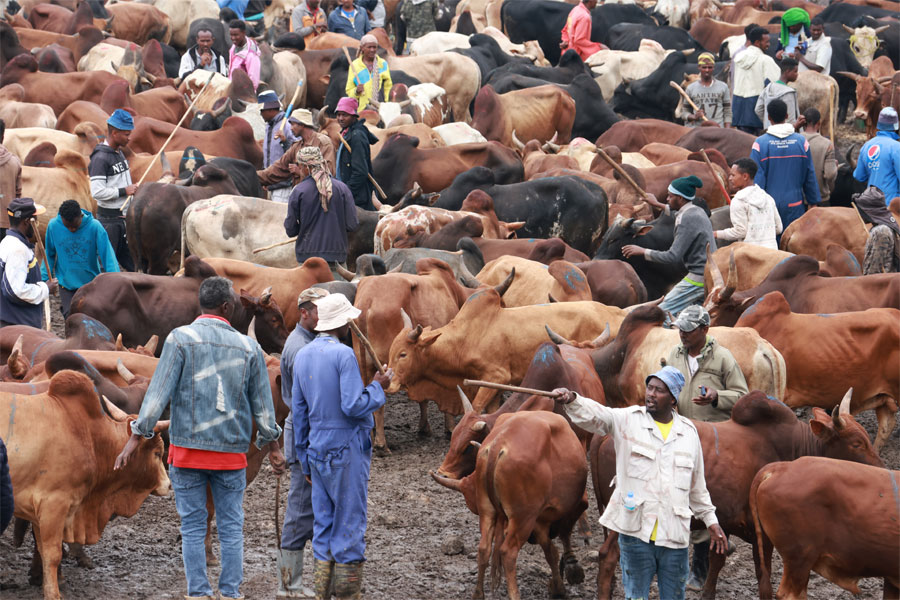
Agenda | Aug 18,2024
Jul 6 , 2019
By FASIKA TADESSE ( FORTUNE STAFF WRITER )
For the first time in seven months, headline inflation showed a slight decline last month, falling to 15.4pc, according to the latest Consumer Price Index.
The rate, which indicates the cost of living, has shown a 0.8 percentage point slide from May, which recorded a 16.2pc rate, an 11-month high, according to data from the Central Statistical Agency.
Last June, both food and non-food inflation rates showed a slight decrease to 19.8pc and 10.2pc, respectively, from the previous month that had 20.7pc for food and 11.1pc for non-food inflation.
The price of major cereal types such as teff, rice, barley, sorghum and maize and most vegetables showed a rise, while prices of wheat and bread, some vegetables, fruits and pulses showed a small decline.
Non-food inflation was also pushed up by price hikes of some components such as clothing and footwear, house rent, housing repair and maintenance, energy, household goods and furnishings, health care and automobiles.
Even though the rate has shown a slight decline from the previous month, the rate is the second highest since June 2018, which saw a rate of 16.8pc - the highest in two years.
The rate is short of targets set by policymakers, who aspire to keep inflationary pressure in single digit figures. However, the rate has remained near or in double-digit territory for the past two consecutive years.
During the current fiscal year, the government planned to keep the rate under 10pc in all directions, paring it down from 16.8pc, according to Prime Minister Abiy Ahmed (PhD), who addressed the parliament last Monday.
"We understand the pressure the rate would bear on investment, lives of the citizens with low-income level status," said Abiy. "Thus, a joint effort is very essential to control the rate."
Last month, the macroeconomic committee chaired by Prime Minister Abiy formed a new task force to explore the causes of rising inflation and come up with recommendations to keep the rate down.
The six-member task force is composed of experts from the National Planning & Development Commission; ministries of Trade & Industry, Finance and Agriculture; the Central Statistical Agency; and the National Bank of Ethiopia.
Chaired by Getachew Adem, deputy chief of the National Planning & Development Commission, the task force will regularly follow up on the inflation rate and conduct research to forward recommendations to the macroeconomic committee. The team has already started collecting data for the study.
Ethiopia's inflation rate is almost three times higher as compared to neighbouring Kenya that managed to keep its inflationary pressure at 5.7pc, according to tradingeconomics.com, a New York-based website that provides information on economic indicators, exchange rates and stock market indexes of 196 countries.
PUBLISHED ON
Jul 06,2019 [ VOL
20 , NO
1001]

Agenda | Aug 18,2024

Sponsored Contents | Aug 22,2022

Fortune News | Mar 14,2020

Agenda | Dec 28,2019


Radar | May 08,2021

Agenda | Sep 09,2023

Exclusive Interviews | Jan 24,2023

Viewpoints | Apr 26,2025

Editorial | Aug 28,2021

Dec 22 , 2024 . By TIZITA SHEWAFERAW
Charged with transforming colossal state-owned enterprises into modern and competitiv...

Aug 18 , 2024 . By AKSAH ITALO
Although predictable Yonas Zerihun's job in the ride-hailing service is not immune to...

Jul 28 , 2024 . By TIZITA SHEWAFERAW
Unhabitual, perhaps too many, Samuel Gebreyohannes, 38, used to occasionally enjoy a couple of beers at breakfast. However, he recently swit...

Jul 13 , 2024 . By AKSAH ITALO
Investors who rely on tractors, trucks, and field vehicles for commuting, transporting commodities, and f...

Oct 18 , 2025
The political establishment, notably the ruling party and its top brass, has become p...

Oct 11 , 2025
Ladislas Farago, a roving Associated Press (AP) correspondent, arrived in Ethiopia in...

Oct 4 , 2025
Eyob Tekalegn (PhD) had been in the Governor's chair for only weeks when, on Septembe...

Sep 27 , 2025
Four years into an experiment with “shock therapy” in education, the national moo...